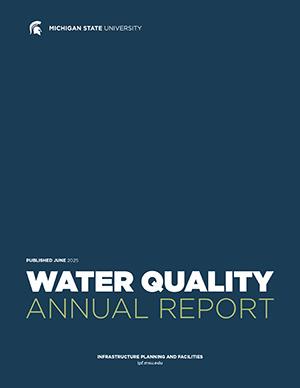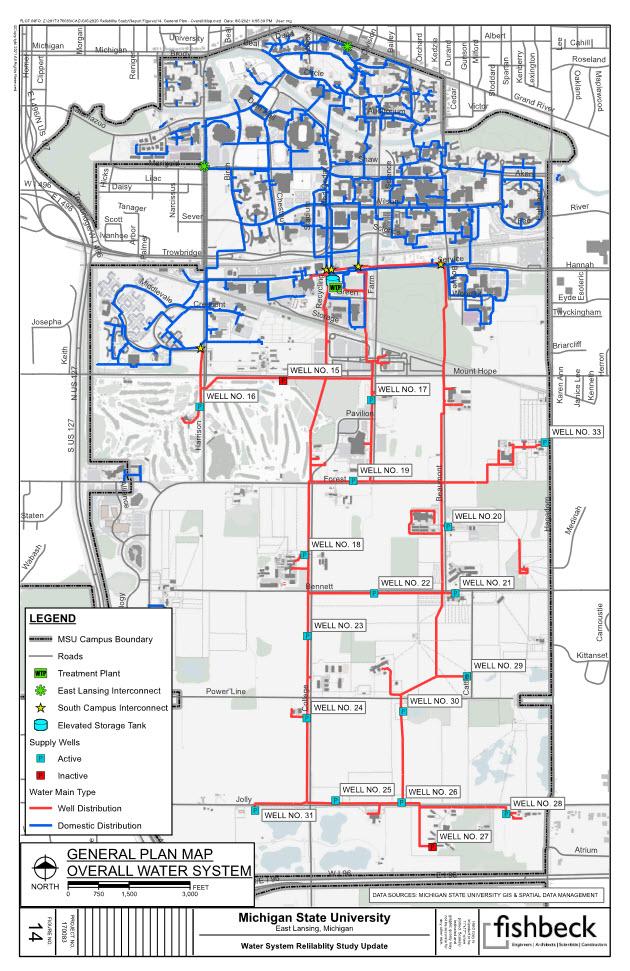Campus Water Quality
Water Quality Report
The latest Water Quality Report for Michigan State University was published in June 2025, covering 2024 samples.
MSU closely monitors the source water and the treated drinking water to ensure a high level of quality and safety is maintained. After being drawn from groundwater wells on south campus and then treated, the water is pumped to most buildings on campus through a network of about 74 miles of water mains. Read more about MSU's water treatment facility and water tower, constructed in 2020, which has improved water quality.
To address two common questions we receive, please know that we have tested for PFAS (per- and polyfluoroalkyl substances, also known as PFCs) and did not detect them. We will continue to test the water supply for these substances as required by the state.
Like PFAS, there is no detectable lead in MSU drinking water when it enters the distribution system.
- Public notice issued November 25, 2025
- 2025 Water Quality Report (PDF)
- Public notice issued August 12, 2024
- 2024 Water Quality Report (PDF)
- 2023 Water Quality Report (PDF)
- 2022 Water Quality Report (PDF)
- 2021 Water Quality Report (PDF)
- 2020 Water Quality Report (PDF)
- 2019 Water Quality Report (PDF)
- 2018 Water Quality Report (PDF)
- 2017 Water Quality Report (PDF)
- 2016 Water Quality Report (PDF)

PUBLIC ADVISORIES AND EDUCATION
Michigan State University has two independent water distribution systems on its East Lansing campus. The Well Water Distribution System (Farms District) starts at the water wells and ends at the Water Treatment Plant and provides drinking water to most buildings in the Farms District south of main campus. The Domestic Water Distribution System (main campus) starts at the water treatment plant and distributes drinking water to most buildings on the main campus.
November 25, 2025 Well Water Distribution System (Farms District) Public Advisory
November 21, 2023 Well Water Distribution System (Farms District) Public Advisory

OTHER WATER SYSTEMS SERVING CAMPUS
View a map of campus water systems.
1855 Place, Jack Breslin Student Events Center, Brody Neighborhood, University Village and the Kellogg Hotel & Conference Center are supplied by the East Lansing-Meridian Water and Sewer Authority. For more information, please see the East Lansing-Meridian Water and Sewer Authority water quality report.
Facilities along the southwest border of campus at Forest and Collins roads, including The James B. Henry Center for Executive Development, are supplied by the Lansing Board of Water and Light. For more information, please see the Lansing Board of Water and Light water quality report.
